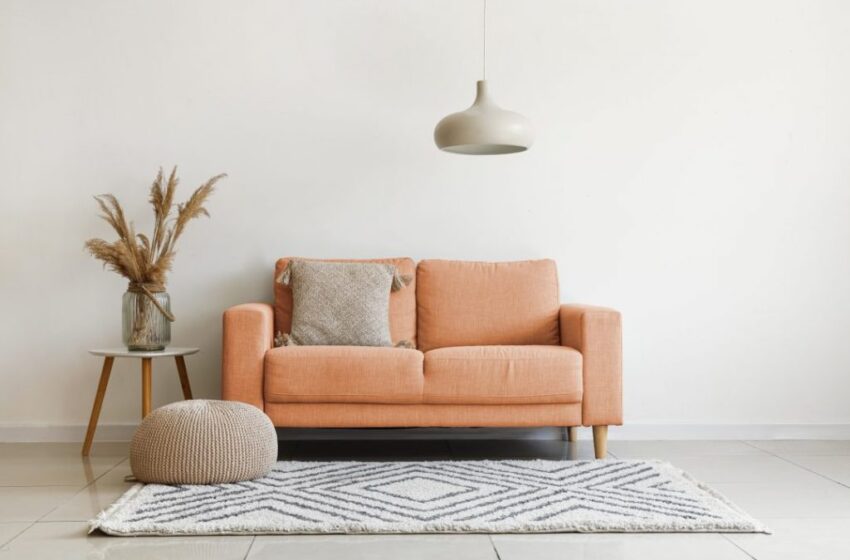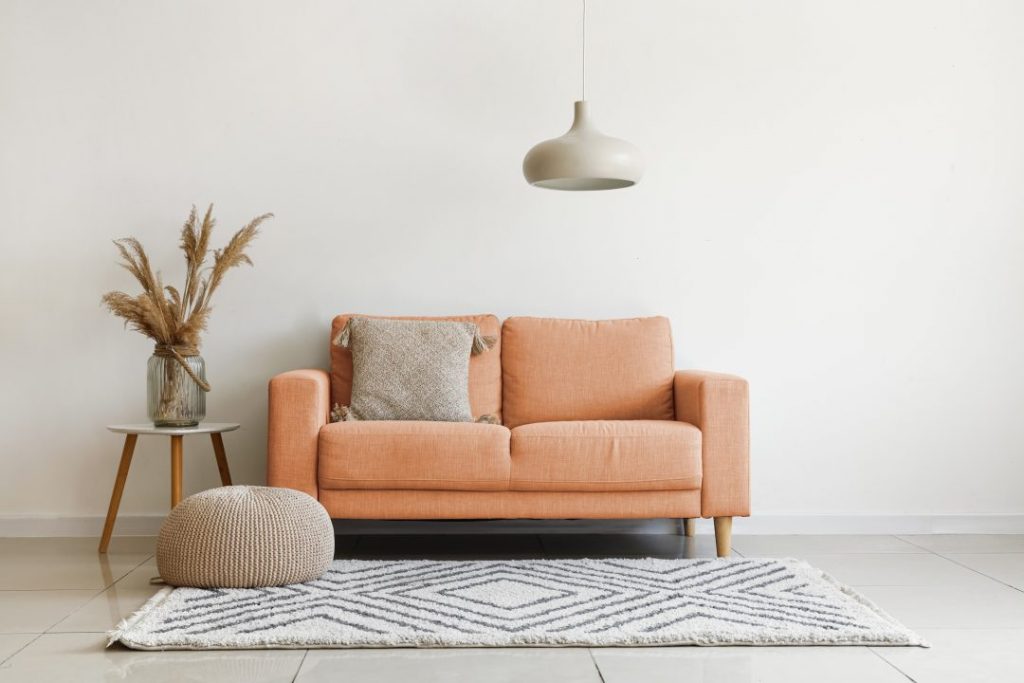
Muslims Said It First: “Sofa”
There are dozens of ordinary ‘English’ words that originally came from languages historically associated with Islam, such as Arabic, Persian and Urdu.
Muslims have never been strangers to the West; we are as inseparable from its culture, history & heritage as our words are from its languages. And our contribution to its development can be found in any dictionary.
Mansoor Dahri, UK

© Shutterstock
When you think of comfort, what is it that typically comes to mind? Perhaps you think of a warm cup of tea accompanied by biscuits? Or a mug of hot chocolate and some marshmallows? A hand-knitted jumper and a soft fluffy blanket? Or maybe a nice cosy radiator or electric heater? (Let’s be realistic: who has a fireplace these days?)
Perhaps you think of a couch.
Or a sofa.
What is the difference between them anyway?
Well, these days, not much…
Broadly speaking, ‘sofa’ and ‘couch’ are used interchangeably. The subtle difference is that ‘couch’ has historically been used more in the sense of something you lie down on whereas sofa has historically referred more to something you sit on. But, these days, you can pretty much sleep on either of them (or at least I have).
I’ll start with the word ‘couch’; it comes from the Old French verb ‘couchier’ meaning to ‘lay down’; ‘couchier’ is the ancestor of the Modern French verb ‘coucher’ (which has the same meaning), and is itself descended from the Latin verb ‘collocare’ (meaning ‘to lay’ or ‘place with’; the ‘locare’ bit is where we get ‘locate’ from in Modern English). The word ‘couch’ has strong sedentary and stationary connotations, hence why, in Modern English, we frequently use the phrase ‘couch potato’ to refer to an impressively lazy person (they spend all their time lying on a couch). It does not refer to a potato that you found inside a couch (in English, we refer to that as ‘poison’).
In modern Western culture, couches have also become symbols of psychiatric treatment; Sigmund Freud, the founder of modern psychoanalysis would ask his patients to lie down on a couch in his study so they could comfortably talk to him about their problems (Freud himself would be sitting up straight somewhere else). This tradition was subsequently passed down from Freud to everyone else in the field to the extent that if you say ‘psychoanalysis’ or ‘psychiatry’, the first image that comes into the minds of most people is a couch.
So, in summary, couches are comfortable to lie down on (sitting is fine as well) but they’re also associated with poor physical health (‘couch potato’) or psychological distress (Freud’s couch).
Now what about sofas? What hidden connotations and symbolism do they contain?
The word ‘sofa’ first came into English in the 1600s from Ottoman Turkish ‘sofa’ (‘صفه’). Back then ‘sofa’ referred to a ‘raised section of a floor’ that was covered with ‘carpets and cushions’ as was typically found in Islamic interiors. So its early associations in English were with Islamic/Oriental design aesthetics. It was considered something exotic.
Islamic depictions of paradise make frequent allusions to carpets and cushions. For instance, the inhabitants of heaven are described by Allah in the Holy Qur’an as:
مُتَّکِـِٕیۡنَ عَلٰی رَفۡرَفٍ خُضۡرٍ وَّعَبۡقَرِیٍّ حِسَانٍ
“Reclining on green cushions and beautiful carpets.” (55:77)
It has long been one of the primary objectives of Islamic art, architecture and design to remind believers of the delights of paradise and thereby inculcate feelings of piety, tranquillity and hope. We see this not only in Islamic interiors that allude to carpets and cushions but also outdoors; the beauty of Islamic gardens with their flowing water and ample shade also serves as a reminder to Muslims of the Gardens of Paradise. You can see prominent examples of these gardens in the Taj Mahal and Alhambra Palace.
But let’s go back indoors for a moment to our sofas. Over time, ‘sofa’ gradually lost its exotic connotations and its meaning also changed slightly; originally it referred to the comfy part of a room where people like to sit (carpets and cushions) and then in English it specifically came to mean a ‘long upholstered seat’. It’s still the comfy part of a room where people like to sit, but now it’s a big soft chair that can be moved around conveniently (depending on the weight of the sofa and the physical fitness of the human(s) involved).
The Ottomans may have introduced them to England, but they themselves were introduced to sofas from elsewhere. In Ottoman Turkish, the word ‘sofa’ (‘صفه’) originally came from the Arabic word ‘ṣuffah’ (‘صُفَّة’) which has the same meaning of an elevated section of the floor or a slightly raised platform.
Muslim readers and non-Muslim readers who have studied Islam might be familiar with the word ‘ṣuffah’. If it rings any bells, you probably heard it being used in the phrase ‘Aṣhab al-Ṣuffah’ (‘أَصْحَاب الصُّفَّة’) i.e. ‘The People of the Raised Platform’.
But if, instead of bells ringing, you still only hear crickets chirping, then allow me to elaborate:
During the early days of Islam, the Holy Prophet of Islam Muhammad (sa) had emigrated from the city of Makkah (his birthplace and home of many decades) to Madinah (a much safer city for Muslims back then) in order to avoid persecution. In Madinah, the Holy Prophet built a mosque known as ‘Al-Masjid Al-Nabawī’ (‘ٱلْمَسْجِد ٱلنَّبَوِي’) i.e. ‘The Prophet’s Mosque’.
Attached to the back wall of this mosque was a raised platform (‘Ṣuffah’) shaded by an open-air roof and reminiscent of a veranda. Many of the companions of the Holy Prophet (sa) voluntarily chose to reside full time in the Ṣuffah out of devotion to Allah and His Messenger (sa); they considered it a great blessing to live right next to the mosque and the Holy Prophet (sa) would often be there as well so they greatly enjoyed the pleasure of his company and were able to hear all of his blessed words. But it wasn’t easy in worldly terms. They had to endure great hardships for the spiritual privileges they enjoyed. Since they resided full-time in the Ṣuffah, they did not work and therefore endured lives of material poverty and great physical hunger. Collectively, these noble companions of the Holy Prophet (sa) were referred to as ‘Aṣhab al-Ṣuffah’ (‘أَصْحَاب الصُّفَّة’) i.e. ‘The People of the Raised Platform’.
Since it was the rise of Islam that caused the development of Arabic as a literary language, the use of the word ‘Ṣuffah’ in the phrase ‘Aṣhab al-Ṣuffah’ in the Islamic context is one of the earliest recorded instances we have of the Arabic word that would go on in English to become ‘sofa’.
Today, we associate sofas only with worldly comfort and delight. However, the origin of the word ‘sofa’ hearkens back to a time of pious souls and loyal companions who shunned earthly comforts and delights in order to obtain the truest and surest comfort there is: the spiritual comfort and delight of true devotion to Allah and His Messenger (sa).
About the Author: Mansoor Dahri is an online editor for The Review of Religions. He graduated from UCL in BA Ancient Languages.



